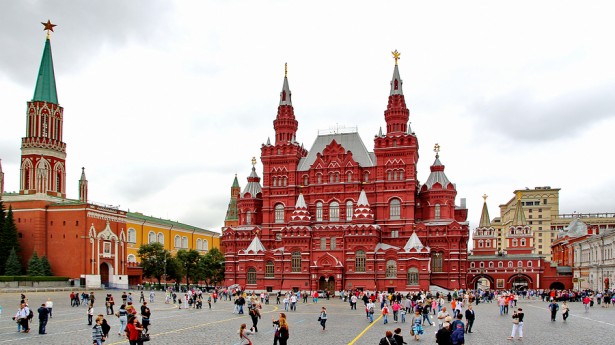Since the Ukraine-Russia conflict began earlier this year, the West has led the charge in applying sanctions against the Russian Federation. This has created numerous setbacks for the nation’s economy and tremendous devaluation of the rouble. In retaliation, Russia has instigated sanctions primarily on food imports from an array of nations, including Australia, Canada and the United States.
Russian Prime Minister Dimitry Medvedev sat down for a roundtable discussion with reporters Wednesday in which he touched upon a variety of matters, including the economy, the Crimean conflict and the U.S. administration. These comments will surely draw the ire of U.S. and other Western leaders.
Medvedev noted that the Russian economy never fully recovered from the financial crisis that unfolded in 2008. As it has failed to emerge strongly from the economic collapse, the country now has to deal with sanctions that have targeted its lucrative energy sector as well as lower oil prices.
The global community has banded together in punishing Russia over its actions taken in Ukraine, where numerous pro-Russian rebels are attempting to take control over greater parts of the eastern region of the country.

With lower oil prices dominating business headlines, the price of oil has fallen 30 percent since the summer. This trend has prompted the rouble to weaken considerably, and it will be quite difficult, says Medvedev, to recover from the current state since the currency has a significant impact on the federal budget.
The Russian leader stated that the rouble’s devaluation “has a certain impact on the budget, on how it balances and for a number of other reasons too, but nevertheless … a substantial weakening of the rouble is not advantageous for the state and the economy.”
The rouble has declined 40 percent against the dollar this year, fueling inflation rates and hurting the gross domestic product. As we reported in October, the Bank of Russia reported that there will not be much economic growth until at least 2017, which is part of the reason why interest rates have remained unchanged.
When asked if government officials are imbibing certain luxuries that other Russians aren’t enjoying, Medvedev scoffed at the suggestion and replied that there is no preferential treatment in Moscow.
“As for the government canteen, in no way does it differ from any other canteen,” he said. “In Soviet times it had discount prices, special food products. But there is no such thing anymore; no oysters, nothing that would not be available in other places.”
Crimea
Reiterating what Russian President Vladimir Putin said earlier, Medvedev posited that it was the nation’s destiny to reclaim Crimea earlier this year.
“Crimea is not an economic issue,” Medvedev told reporters. “When we speak about Crimea … we realize that it is our history, our destiny and our pain too … and that there is a great number of our people (living there), who have voted this year to return to the Russian Federation.”
The annexation of Crimea prompted governments around the world to impose visa bans and asset freezes.



